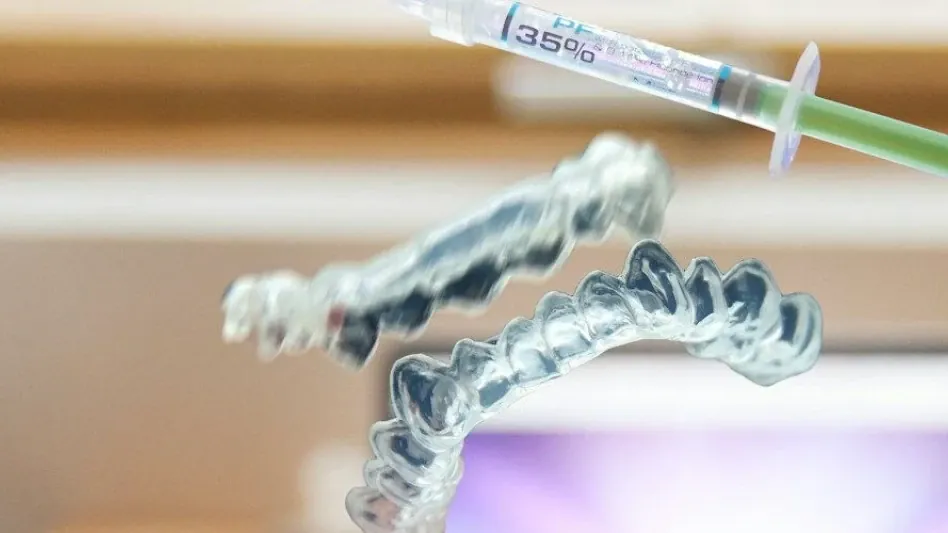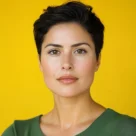As Colorado’s population continues to age, the need for specialized healthcare providers in geriatric dentistry becomes increasingly evident. By the year 2050, the number of Colorado residents over 65 years old is expected to double, which creates a significant demand for healthcare professionals trained in the unique needs of older adults. The University of Colorado School of Dental Medicine (CU SDM) is at the forefront of addressing this emerging healthcare challenge.
Importance of Geriatric Dentistry
Unique Needs of Older Adults
Geriatric dentistry is an essential branch of dental healthcare explicitly tailored to manage and prevent oral health problems in older adults. This specialty requires an understanding of how aging and multiple health conditions, often exacerbated by various medications, impact oral health. The complexity of these conditions necessitates specialized care that goes beyond standard adult dental treatments. Older adults often face issues such as dry mouth, root decay, and gum disease, which require a more nuanced approach. Many may have difficulty maintaining oral hygiene due to physical limitations or cognitive impairments. Thus, providers need to be patient, empathetic, and knowledgeable about multimorbidities common in geriatrics.
The role of the geriatric dentist extends far beyond treating symptoms; it involves understanding the multifaceted nature of geriatric health. For instance, an older adult with arthritis may struggle with the manual dexterity required for proper tooth brushing, necessitating adaptive strategies and tools. Moreover, the prevalence of cognitive decline among older adults means that geriatric dentists often coordinate with caregivers to implement effective oral hygiene routines. These intricate care strategies are designed to address the underlying health issues while maintaining good oral health, thereby improving the overall quality of life for older adults.
Advancements in Medical Treatments
Advancements in medical treatments have increased life expectancy, but they also bring challenges in managing the oral health of older adults. These individuals tend to take multiple medications that can lead to side effects affecting oral health, such as xerostomia (dry mouth), which increases the risk of cavities and gum disease. Geriatric dental specialists are trained to formulate patient-centered plans that cater to these unique challenges, integrating care with other medical treatments. For example, medications for hypertension, diabetes, and osteoporosis often cause dry mouth, leading to an increased risk of oral infections and tooth decay.
To mitigate these effects, geriatric dentists employ a combination of preventive measures and therapeutic interventions tailored to the individual. This includes recommending saliva substitutes, adjusting fluoride use, and providing specific dietary guidelines to enhance oral health. Additionally, they often need to communicate and collaborate closely with other healthcare providers to ensure that dental treatments are compatible with the overall medical regimen of the patients. This holistic approach ensures that oral healthcare supports the broader medical care plan, addressing the complex interrelation between systemic health and oral health.
Growing Demand for Geriatric Dental Care
Colorado’s Aging Population
As the population ages, there is a growing demand for dental professionals trained in geriatrics. Colorado is experiencing this demographic shift firsthand, with projections indicating a significant increase in residents over 65 years old by 2050. This surge necessitates a workforce equipped to handle the intricate oral healthcare needs of older adults. The current shortage of geriatric-trained healthcare providers poses a risk to the quality of care available to this vulnerable population. Therefore, educational institutions and legislative bodies are recognizing and addressing the urgent need for specialized training in geriatrics.
This demographic trend underscores the urgency of equipping the dental workforce with specialized knowledge in geriatric care. Ensuring that dental practitioners are well-versed in the unique challenges and requirements of older adults is critical for maintaining their oral health and, by extension, their overall well-being. The implications extend beyond individual care; a well-prepared dental workforce can contribute to public health by reducing the prevalence of oral diseases and their complications among the elderly. Such preparation also involves creating an educational framework that emphasizes the importance of geriatric dentistry, encouraging more dental students to pursue this specialty and filling the gap in geriatric dental care.
Senate Bill 23-031
Enacted to tackle this impending challenge, Senate Bill 23-031 expands training opportunities for geriatric care among clinical graduate students in Colorado. This legislative effort reflects a proactive approach to prepare the future healthcare workforce for the anticipated rise in the elderly population. By prioritizing geriatric training, the bill aims to enhance the quality of healthcare services for older adults. This strategic initiative not only recognizes the pressing need for specialized training but also underscores the broader societal commitment to addressing the healthcare needs of an aging population.
Senate Bill 23-031 paves the way for more comprehensive and accessible geriatric care by supporting educational programs that integrate geriatric training into their curricula. This legislative move emphasizes collaboration between state agencies, educational institutions, and healthcare facilities to create a robust pipeline of geriatric-trained professionals. It also encourages innovation in educational methodologies, such as incorporating technology and interdisciplinary learning, to provide a thorough understanding of geriatric care. The bill is a significant step toward ensuring a sustained and well-equipped healthcare workforce capable of meeting the future needs of Colorado’s aging residents.
Educational and Training Initiatives
Programs at CU SDM
The University of Colorado School of Dental Medicine has implemented several initiatives to equip future dentists with the skills and knowledge required in geriatrics. One such initiative is the GeriCare EveryWhere program, which is managed by the CU Anschutz Multidisciplinary Center on Aging. This program offers comprehensive training in geriatric care, emphasizing a holistic approach to patient health. CU SDM’s curriculum includes coursework and hands-on training that covers a wide range of geriatric dental issues. Students learn to manage conditions specific to older adults and become adept at coordinating care with other healthcare providers to ensure comprehensive treatment plans.
The GeriCare EveryWhere program exemplifies CU SDM’s commitment to creating a multi-dimensional educational experience. By incorporating interprofessional education, students are exposed to various aspects of geriatric healthcare, learning to collaborate with professionals from different fields such as medicine, nursing, and pharmacy. This approach fosters a deeper understanding of the interconnectedness of geriatric care, ensuring that dental graduates are not only skilled in clinical procedures but also proficient in systemic care coordination. The program also includes community engagement components, where students provide care in settings such as nursing homes and community centers, gaining practical experience and reinforcing the importance of accessible geriatric care.
Geriatric Dental Medicine Fellowship
To further enhance the training of future specialists, CU SDM launched the Geriatric Dental Medicine Fellowship. This fellowship is tailored to prepare dentists for the complexities of treating older adults, with a curriculum that emphasizes holistic health. Fellows gain advanced clinical skills, engage in interprofessional care coordination, and conduct relevant gerontological research. The fellowship also includes community outreach programs, allowing fellows to gain real-world experience. This hands-on approach helps them understand the broader context of geriatric care and the importance of public health considerations in treatment planning.
The fellowship program at CU SDM represents a significant advancement in geriatric dental education. By offering immersive experiences and specialized training, it prepares participants for the multifaceted challenges of geriatric dentistry. Fellows are trained to become leaders in the field, capable of influencing policy, improving clinical practices, and contributing to research that advances the understanding of geriatric oral health. The fellowship’s emphasis on community outreach also ensures that participants develop a strong sense of social responsibility, recognizing the impact of their work on public health. This combination of advanced clinical training, research, and community engagement equips fellows with the skills and knowledge to provide exemplary care for older adults, addressing both individual needs and broader healthcare challenges.
Personal Narratives and Experiences
Impactful Educators and Mentors
Educators play a pivotal role in inspiring and training the next generation of geriatric dental practitioners. Figures such as Dr. Elena Ciobanu provide invaluable mentorship and real-world insights into the field. Dr. Ciobanu’s journey and dedication to geriatric dentistry highlight the impact that passionate educators can have on shaping competent and empathetic healthcare providers. Personal testimonials from students and practitioners underscore the fulfillment found in geriatric dentistry, emphasizing the profound difference skilled care can make in the lives of older adults. These stories illustrate how specialized training in geriatrics equips providers to address the unique challenges faced by their aging patients.
Dr. Ciobanu’s approach to education extends beyond traditional teaching methods, incorporating personal anecdotes and case studies to create a compelling learning experience. Her mentorship fosters a deep appreciation for the nuances of geriatric care, encouraging students to develop both technical skills and emotional intelligence. By sharing her own experiences and challenges, Dr. Ciobanu provides a realistic perspective on the rewards and difficulties of working with older adults. This mentorship not only enhances the educational journey of students but also instills a sense of purpose and dedication, driving them to pursue excellence in geriatric dentistry.
Real-World Applications
As Colorado’s population continues to age, the growing need for specialized healthcare providers in geriatric dentistry becomes more apparent. By 2050, the number of Colorado residents over the age of 65 is projected to double. This demographic shift will create a substantial demand for healthcare professionals with the training and expertise to address the unique needs of older adults. The University of Colorado School of Dental Medicine (CU SDM) is actively stepping up to meet this emerging challenge in healthcare.
Geriatric dentistry is crucial because aging adults often face specific dental issues such as gum disease, tooth decay, and oral cancers, in addition to dealing with complex medical histories and medications that can affect dental treatment. The CU SDM aims to provide comprehensive training for dental students to ensure they are well-equipped to handle these challenges. Their curriculum includes advanced coursework and hands-on clinical experience, focusing not just on dental care but on a holistic approach to geriatric health.
Furthermore, the School of Dental Medicine collaborates with other healthcare disciplines to promote interdisciplinary care. This approach enhances the overall well-being of the elderly by incorporating dental care into broader health strategies. As the aging population in Colorado grows, CU SDM’s proactive measures ensure that future dental professionals are prepared to deliver high-quality, specialized care to older adults, meeting a critical need in the state’s healthcare system.









